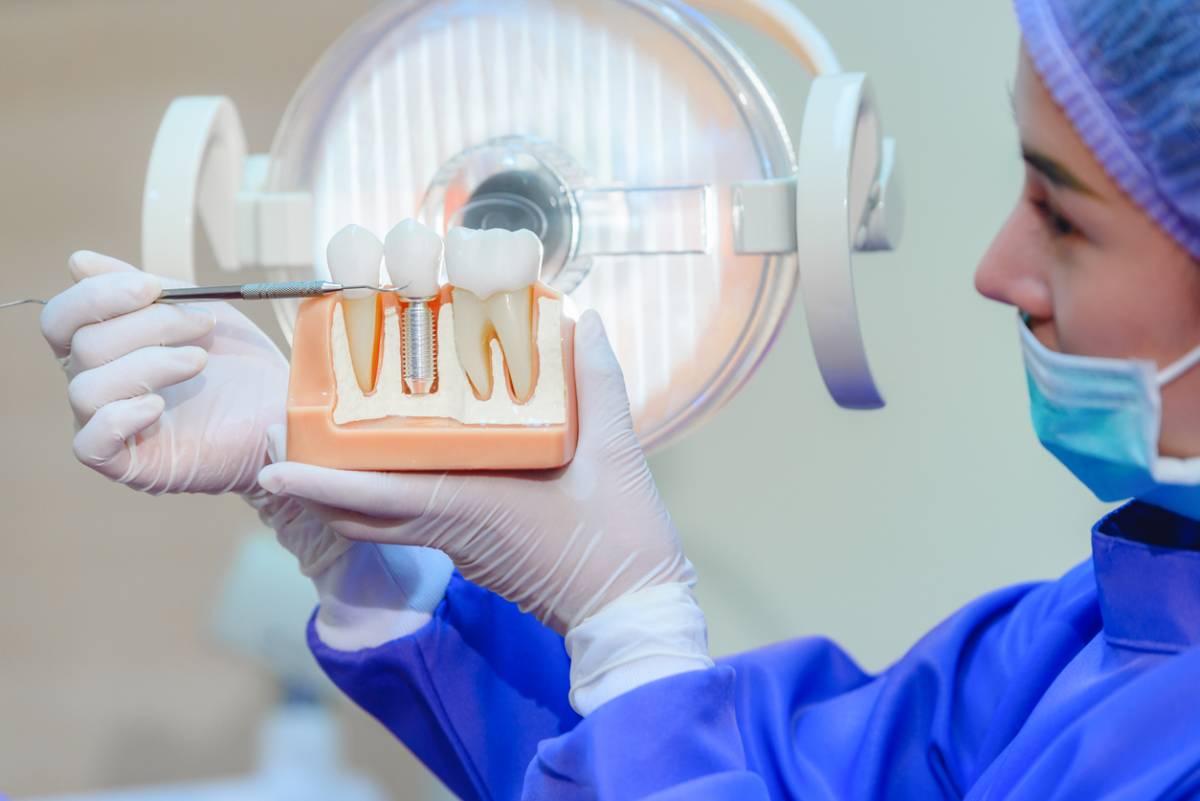Dental implants have given hope to many dental patients who have lost their teeth. Implants not only ensure that your teeth can properly function as they should but also provide a permanent and natural-looking solution to missing teeth. However, one of the most common concerns of patients is whether or not dental implants hurt. You must express your concerns and apprehensions to your dentist. Understanding the process and knowing what to expect when it comes to pain and discomfort can help you manage your anxiety so you can prepare better for the procedure. Do dental implants work? This post will address this question.
Understanding the Dental Implant Procedure
A dental implant is a post that is made of titanium, which is surgically placed into the jawbone and serves as an artificial root.
The dental implant procedure involves several steps.
The Procedure:
- Initial Consultation and Planning: Your dentist will evaluate your oral health through oral examination, x-rays, and 3D images to determine whether or not you have enough bone density to support an implant.
- Tooth Extraction: If your damaged tooth is still attached, your dentist will have to do an extraction before the implant can be placed.
- Bone Grafting: In situations where the jawbone is too thin or weak, your dentist may find it necessary to do a bone graft to strengthen the area.
- Implant Placement Surgery: The titanium post will be surgically inserted into the jawbone.
- Healing and Osseointegration: After a few months, the implant will integrate with the bone and create a strong foundation.
- Abutment and Crown Placement: Once healing is complete, the dentist will attach an abutment to the implant. This will be followed by a custom-made crown that matches the patient’s teeth.
Does the Dental Implant Procedure Hurt?
During the implant procedure itself, you will only experience minimal pain since it is performed under local anesthesia. In some cases, sedation or general anesthesia may be used for patients who are especially fearful and anxious or for those who are undergoing multiple implants.
Patients usually say that they feel pressure or vibrations during surgery, but not actual pain. In addition, dentists ensure that the area is completely numb before they start the procedure. If at any point, the patient feels any discomfort, anesthesia can be administered.
Pain After Surgery
Discomfort after the anesthesia has worn off is normal. However, post-operative pain is usually mild to moderate, and so is manageable with the use of over-the-counter pain relievers like ibuprofen.
Common Post-Surgical Symptoms
- Swelling: There may be a slight swelling on the gums and face for a few days.
- Bruising: Minor bruising around the surgical area is possible.
- Mild Bleeding: Bleeding may continue for the first 24 hours but should subside after that.
- Tenderness: Patients feel sore for a few days, but intense pain is rare.
Some patients report that discomfort peaks within the first 48 hours and gradually subsides after a few days. Pain should not worsen or persist beyond a week. If it does, it may mean that there is an infection. If this is the case, you need to call your dentist immediately.
Long-Term Discomfort or Pain
When the healing process is complete, dental implants should not cause any pain. However, some factors may cause prolonged discomfort.
- Improper Healing: If the implant is not properly integrated with the jawbone, this can cause pain or may feel loose.
- Infection (peri-implantitis): This may be caused by bacteria buildup due to poor oral hygiene.
- Nerve Damage: Though rare, nerve endings may be affected and may cause tingling, numbing, and pain.
- Sinus Issues: Discomfort may occur if the implant in the upper jaw is placed too close to the sinus cavity.
If you continue to feel pain months after the procedure, you need to visit your dentist to determine the cause of the pain and receive treatment.
Managing Pain and Ensuring a Smooth Recovery
- Follow your dentist’s post-operative care instructions.
- Take the prescribed pain reliever as instructed.
- To reduce swelling, you may apply ice packs.
- Eat soft foods and avoid the implant site when chewing.
- Be gentle around the surgical site when brushing your teeth.
- Avoid smoking to help your gum heal faster and prevent implant failure.
Talk to a Dentist About Dental Implants
Although mild discomfort and manageable pain are to be expected during the healing process, the benefits that you get from dental implants far outweigh the pain and other disadvantages. Unlike dentures, implants give you a long-lasting, stable, and natural-looking/feeling solution that improves function and aesthetics. To ease your anxiety and address your concerns, schedule a consultation with us today.



